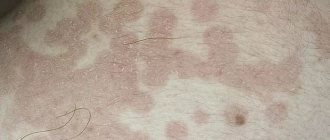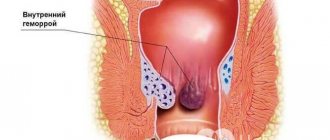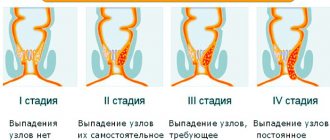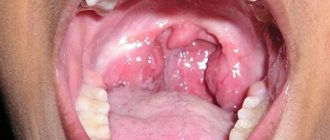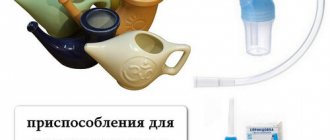What is cystitis
Doctors call inflammation of the mucous membrane of the bladder walls, or cystitis, the most common female gynecological disease, although it also affects men. Only due to physiological characteristics, it is much less common: the urinary tract in males is longer, pathogenic microorganisms are more often encountered with resistance when moving up to the bladder. Cystitis can occur in 2 forms:
- Acute - often it all starts with it, its duration is short.
- Chronic – observed due to improper treatment or against the background of too frequent preconditions for relapses.
The inflammatory process can occur on different layers of the walls - mucous, submucosal, muscular, affecting not only the bladder, but also nearby pelvic organs. Symptoms of the chronic form of cystitis are erased or absent, while the acute form is represented by:
- increased urge to urinate (up to intervals of 3 minutes between them);
- cutting or aching pain in the lower abdomen, which intensifies with urination and can go into the rectum;
- a feeling of fullness in the bladder even after urination;
- bloody impurities in the urine;
- burning, itching when urinating.
Causes
When making a diagnosis, doctors use several classifications of cystitis: it can occur in a completely healthy body (primary) or against the background of existing diseases of the pelvic organs (secondary). In the latter case, the reasons are mainly:
- stones in the bladder or kidneys;
- prostate adenoma (in men);
- urethral stricture;
- urethritis, prostatitis (in men);
- tumors of the pelvic organs.
According to etiology, cystitis can be divided into non-infectious (medicinal, chemical, allergic, toxic) and infectious. In women, the latter option is especially common, since the urethra is short and wide, pathogenic microorganisms from the vagina quickly penetrate the lower urinary tract. The culprits of cystitis are:
- Escherichia coli, staphylococcus;
- Candida fungus (the causative agent of thrush);
- Chlamydia, Trichomonas, Ureaplasma (provoke chlamydia, trichomoniasis, ureaplasmosis);
- Gardnerella (causes bacterial vaginosis);
- Treponema (causative agent of syphilis, sexually transmitted).
Additionally, in urology and gynecology, provoking factors are noted that aggravate the situation or contribute to the development of infection: hypothermia, unprotected sexual intercourse, pathologies of the structure of the urethra. Decreased immunity, insufficient hygiene of the genital organs, and long-term antibacterial therapy also play a role.
Garlic
With the help of garlic, you can eliminate various pathogenic microorganisms in the cavity of the inflamed bladder and relieve pain due to cystitis. It also helps stabilize the immune system. Folk remedy recipe:
- Peel a small head of garlic and grate the cloves.
- Pour the resulting slurry with one liter of boiling water and leave for three hours.
- Add a spoonful of liquid honey, stir and strain the broth.
You will need to prepare a remedy for cystitis every day. Doctors recommend drinking about half a glass every 1.5 hours. In total, the volume should be a liter per day.
This remedy should not be used by women with intestinal or stomach diseases.
Treatment
Any attempts to combat bladder inflammation begin with diagnostics, through which the cause of the disease is established. Afterwards, medications that can affect it are selected. For infectious etiology, these are antiviral, antibacterial, antifungal drugs. If the disease is secondary, it will be necessary to additionally eliminate related problems. Treatment for cystitis may involve the use of both pharmaceutical drugs and folk recipes for local and systemic effects.
In a complex of therapeutic and preventive measures for cystitis, natural remedies based on plant components, such as extracts of bearberry leaves, horsetail and cranberry fruits, are often used.
For example, the dietary supplement "UROPROFIT®", the components of which have antimicrobial, anti-inflammatory and antispasmodic effects.**
The complex of biologically active substances included in the dietary supplement “UROPROFIT®” helps normalize urination, improves the functional state of the kidneys and urinary tract, and also reduces the risk of repeated exacerbations of chronic cystitis.**
Symptoms of bladder inflammation
Inflammation of the bladder manifests itself differently in women. For some, the pathology has a stormy clinical picture with a disturbance in general well-being. For others, it is very mild and only minor problems are noted.
What are the signs of cystitis in women and its treatment with folk remedies? The most common manifestations of bladder inflammation are:
- Strong desire to urinate.
- Despite the constant urge, the amount of urine is small.
- Unpleasant burning and itching when going to the toilet.
- Bright red blood in the urine.
- Drawing pain above the pubis.
- General health is usually not affected; a slight rise in temperature is possible.
What symptoms women have determines further tactics for diagnosis and treatment.
Important! Even one sign of the presence of blood in the urine can suspect pathology. Inflammation of the bladder in women is indicated by the presence of fresh red blood. If the urine is brown or burgundy, kidney disease is present. In these cases, consultation with a nephrologist is mandatory!
How to treat cystitis at home
Acute and chronic forms of bladder inflammation can be treated on an outpatient basis (without hospitalization) if you strictly adhere to the regimen prescribed by your doctor. Firstly, the patient is prescribed bed rest if the symptoms are severe and the condition is severe. Secondly, treatment of cystitis at home involves an integrated approach:
- douching to fight infection (1% mummy solution, chamomile infusion);
- warming the bladder to eliminate pain (baths with warm milk and herbal decoctions, compresses);
- diet to reduce the load on the organs of the urinary system (refusal of salty, spicy, smoked foods, introduction of diuretic decoctions, infusions, juices into the diet);
- local (suppositories) or systemic (tablets) painkillers;
- antibacterial drugs topically or orally in the presence of a bacterial infection.
Spicy
The severe inflammatory process that characterizes the acute form of cystitis requires active medical intervention. It is important to start therapy immediately so that the disease does not progress to the chronic stage. This treatment has two goals: eliminate the cause and alleviate the condition by reducing the symptoms. Folk remedies for acute cystitis are used only as auxiliaries; they are mainly used topically (douching, warming). Systemic therapy must be medicinal, discussed with a gynecologist.
Chronic
If the symptoms of the disease have subsided, but periodically make themselves felt barely noticeably - there is discomfort during bowel movements, the urge to urinate too often, or urinary incontinence is observed - the acute stage has given way to the chronic stage. Its danger lies in the impossibility of a complete and absolute cure: neither with folk remedies, nor with serious medications. Therapeutic measures taken in this situation are aimed at:
- prevention of relapses, for which you can use alternative medicine recipes;
- elimination of foci of infection;
- restoration of urine flow (especially in men with prostate adenoma, narrowing of the urethra).
Treatment of cystitis with folk remedies
At any stage of the disease, alternative medicine methods are complementary to the main therapeutic regimen, since they are not equal in strength to classical drug treatment. Mostly folk remedies for cystitis are herbal medicine - decoctions, infusions or tinctures of medicinal herbs that have a diuretic and anti-inflammatory effect, relieve burning, pain, itching:
- calamus root;
- sea buckthorn oil;
- sage leaves and stems;
- Oak bark;
- rosehip roots;
- Dill seeds;
- St. John's wort flowers and stems;
- Birch buds.
Symptoms are eliminated by local use of such agents; inflammation is affected through oral administration. Diuretics (herbs with diuretic properties) are used carefully, only in the absence of stones in the bladder and the absence of severe kidney pathologies. This quality is possessed by cranberry and lingonberry juice, bearberry infusion and currant leaves, which are drunk in the amount of 5-6 glasses per day.
Parsley
Simple and familiar greens, which are actively used in food, are a powerful natural healer. Thanks to its anti-inflammatory, antispasmodic, immunomodulatory and antimicrobial properties, parsley is very useful for bladder inflammation. In the evening, chop a fresh large root, add 0.5 liters of water, and boil for half an hour. In the morning, filter, drink the decoction on an empty stomach 1 glass per day for 4 days.
Soda
Treatment of cystitis with folk remedies in women involves mandatory douching with antibacterial compounds, for which a soda solution is used. It is safer than any local antibiotics and works great at the initial stage of the disease. Dissolve 3 tsp in a liter of warm water. baking soda and use the resulting solution with a bulb or syringe heating pad 3 times a day. This treatment is carried out for 4 days.
Sea buckthorn oil
Endocervitis, cervical erosion, colpitis, vaginitis, cystitis - for all these diseases, doctors call sea buckthorn oil, which has regenerative, analgesic and antiseptic qualities, the most effective folk remedy. The principle of use is simple: twist a cotton swab, soak it in oil and insert it into the vagina in the evening. Remove in the morning, repeat the procedure daily, the course of treatment lasts 2 weeks.
St. John's wort
For gynecological diseases in folk medicine, St. John's wort acts as an antiseptic and mild antibacterial agent. Cystitis (especially complicated by thrush) is treated with a decoction, which is drunk for 3 weeks. This folk remedy is prepared as follows: 2 tbsp. l. dried herbs are poured with a liter of boiling water and heated over low heat for half an hour. After cooling, filter and drink 1/4 cup in the morning and afternoon.
Propolis tincture
When considering folk remedies for cystitis, you need to pay attention to propolis tincture, which is a strong anti-inflammatory and antibacterial agent. At the chronic stage, add 20 drops to tea in the morning, the course of treatment is 2 weeks. Getting rid of acute cystitis will not be so simple and quick - propolis tincture will need to be diluted in 100 ml of warm water (25 drops), and drink this folk remedy 3 times a day for a month, half an hour before meals.
Sage
The essential oils and organic acids present in sage make it a good antibacterial and anti-inflammatory folk remedy for cystitis. It is used orally, in the form of a decoction: 10 g of dried crushed leaves are poured into a glass of hot water and boiled on low burner power for 15 minutes. When the product has cooled to a comfortable temperature, take the first portion. Drink 50 ml before meals 30 minutes. 2 r/day for 14 days.
Mint
The antiseptic and analgesic properties of mint have made it a good folk remedy for cystitis, but it shows maximum effect when introduced into herbal infusions. There are several effective recipes:
- Ground chicory or rose hip root combined with mint leaf (1:1) is boiled for 20 minutes. in a water bath. For 400 ml of water take 1 tbsp. l. with a collection slide. Drink the decoction a day, dividing it 4 times.
- Boil 15 g of mint, nettle and currant leaves (in 2 liters of water), take a warm sitz bath for 10 minutes.
Flax seeds
The mild diuretic property is the reason why doctors advise preparing a decoction of flax seeds for cystitis: 1 tbsp. l. pour a glass of cold water, boil for 3-5 minutes. and leave to brew for an hour. The resulting thick jelly is drunk warm in a glass before main meals, but treatment should not last longer than 2 weeks, since this folk remedy can cause constipation.
Oak bark
You can also replace anti-inflammatory medications with some medicinal herbs: oak bark is one of these safe but effective folk options. Additionally, it has antimicrobial properties, so it helps fight cystitis caused by vaginal bacteriosis. Treatment is carried out in baths: mix chamomile flowers or black poplar buds and oak bark 1:1, pour 20 g of the mixture with a glass of boiling water, leave for an hour. Before the procedure, the resulting product is diluted with warm water. Take a bath for 10 minutes.
Dill seeds
The anti-inflammatory effect of dill is achieved thanks to the essential oil in its composition. When using products based on dill seeds, the severity of the pain syndrome decreases, so they are recommended both at the chronic stage and at the acute stage. There are 2 main folk methods of using dill seeds:
- Pour 1 tbsp. l. raw materials with a glass of boiling water, leave for 20 minutes. Drink 100 ml before meals for a week.
- Boil a mixture of 3 tbsp. l. raw materials and 300 ml of water for 15 minutes, leave for an hour. Use for baths (take 10-15 minutes) every evening, diluting with warm water.
Dill seeds
Dill seeds help destroy pathogenic organisms that provoke the occurrence and development of cystitis, relieve inflammation and reduce pain. A decoction of dill seeds for cystitis in women is very easy to prepare: finely chop the dill stems with seeds and leaves with a knife, then pour 3 tablespoons of the raw material into 200 ml of boiling water and keep in a steam bath for 20 minutes.
The finished broth must be carefully strained and drunk 60 - 70 ml before each meal. 2–3 days after starting treatment, the patient’s condition should improve noticeably, but treatment cannot be abandoned, because its full course lasts at least 7–10 days.
Dill seeds have a beneficial effect on the genitourinary system. To treat cystitis in women, dill seeds are used as a folk remedy internally and externally. An oil or water extract is suitable for hot baths to relieve severe pain in the lower abdomen.
The infusion of seeds is drunk cold, 50 ml 3 times a day. Treatment is continued for 21 days so that the body can completely overcome the infection.
Flax seed is often used against cystitis by women who fight the disease with folk remedies. The seeds contain healing mucilage containing a large number of bioactive components. It envelops the tissue and relieves inflammation.
To cure cystitis in women with this folk remedy, make a decoction of the seeds. To prepare it, take 1 tbsp. l. raw materials per 500 ml of water. The folk remedy is boiled for 15 minutes, brought to the original volume, and drunk together with the seeds, 100 ml 3 times a day.

